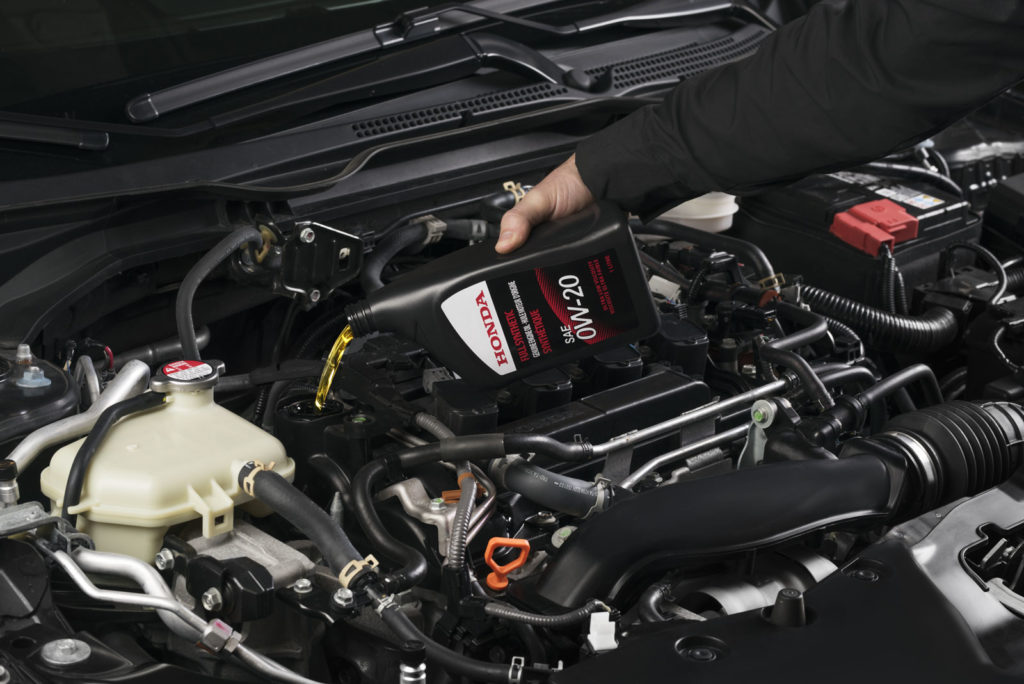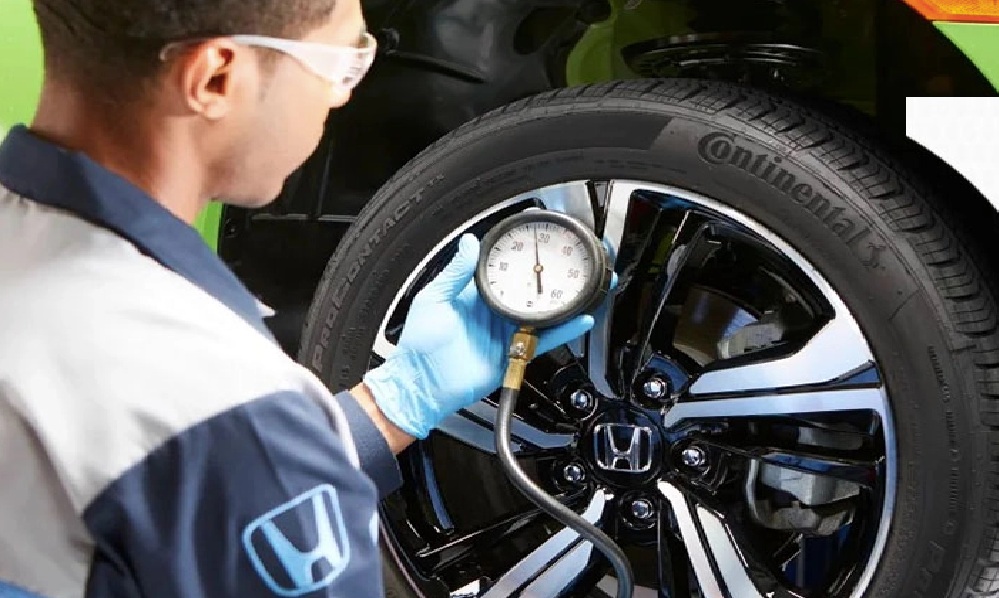Are you tired of spending money on oil changes every few months? The debate between DIY and professional oil filter changes has been ongoing for years. While some people swear by their DIY skills, others rely on the expertise of professionals. So, which option is better? In this article, we will unveil the pros and cons of DIY vs professional oil filter changes so you can make an informed decision. We will explore each method’s cost-effectiveness, convenience, and potential risks. Whether you are a handy DIY enthusiast or prefer to leave it to the pros in Port Moody, this article will provide valuable insights to help you decide the best approach for your oil filter changes. So, grab your wrench and join us as we dive into the world of DIY vs professional oil filter changes!
Also read about:
Why Honda Car Dealership in Port Moody is the Best Choice for Your Next Ride
Features and specifications of each Honda SUV model
Quality Used SUVs for Sale in Port Moody

DIY Oil Filter Changes: Pros and Cons
Performing an oil change on your own has its advantages and disadvantages. Let’s look at the pros and cons of DIY oil filter changes.
Pros of DIY Oil Changes
- Cost-effectiveness: One of the primary benefits of DIY oil filter changes is cost-effectiveness. By doing it yourself, you can save money on labour costs. Professional oil filter changes often come with a hefty price tag, especially if you visit a dealership or specialized service center. DIY oil filter changes allow you to purchase the filter and oil separately, potentially saving you significant money in the long run.
- Control over the process: When you take the DIY route, you have complete control over the oil change process. You can choose the specific brand and type of oil and filter that best suits your vehicle’s needs. This level of customization ensures that you are using high-quality products that are most compatible with your engine, potentially enhancing its performance and longevity.
- Learning opportunity: For those who enjoy working on their vehicles or want to learn more about car maintenance, DIY oil changes provide a valuable learning opportunity. By performing the task yourself, you can familiarize yourself with the inner workings of your vehicle and gain a better understanding of its maintenance needs. This knowledge can empower you to take better care of your car and perform other basic maintenance tasks in the future.
Cons of DIY Oil Changes
- Time and effort: DIY oil filter changes require time and effort. You need to gather the necessary tools, locate the oil filter, drain the old oil, and properly dispose of it. Additionally, you may need to access hard-to-reach areas beneath the vehicle, which can be challenging without the right equipment. DIY oil changes may not be the most convenient option if you have a busy schedule or lack the necessary skills.
- Potential mistakes: Performing an oil change without professional guidance increases the risk of making mistakes. Using the wrong filter or oil viscosity, overtightening or under-tightening the filter, or improper disposal of the used oil can lead to serious engine damage or environmental consequences. If you are not confident in your abilities or lack knowledge about your vehicle’s specific requirements, leaving it to the professionals may be safer.
- Warranty concerns: If your vehicle is under warranty, DIY oil filter changes could potentially void the warranty if not performed according to the manufacturer’s specifications. Some warranties require oil changes to be completed by authorized service centers to ensure proper documentation and adherence to specific procedures. Before deciding to take the DIY route, check your vehicle’s warranty terms and conditions to avoid unexpected warranty issues.
Professional Oil Filter Changes: Pros and Cons
Now, let’s examine the pros and cons of professional oil changes to understand this alternative option comprehensively.
Pros of Professional Oil Filter Changes
- Expertise and experience: Professional oil changes offer the advantage of knowledge and experience. Certified technicians at service centers or dealerships have undergone extensive training and know how to perform oil filter changes accurately. They are familiar with various vehicle models and can quickly identify potential issues or additional maintenance needs, ensuring your vehicle receives comprehensive care.
- Convenience and time-saving: Taking your vehicle to a professional for an oil change can be convenient and time-saving. Service centers often provide additional services like a multi-point inspection, tire rotation, or fluid top-ups, saving you time and effort. Instead of spending your precious weekends underneath your vehicle, you can drop it off at a service center and have the professionals handle the entire process while you attend to other tasks or relax.
- Documentation and warranty protection: Professional oil changes come with proper documentation, ensuring your vehicle’s maintenance history is accurately recorded. This documentation can be beneficial when it comes to warranty claims or selling the vehicle in the future. Additionally, if your vehicle is still under warranty, having oil filter changes performed by authorized service centers ensure that you comply with the manufacturer’s requirements, protecting your warranty rights.
Cons of Professional Oil Filter Changes
Cost: The cost of professional oil changes can be significantly higher compared to DIY. Service centers often charge for labour, and the overall cost can vary depending on your location and the type of center you choose. If you are on a tight budget or prefer to save money, DIY oil filter changes may be a more cost-effective option.
Limited control: When you opt for professional oil filter changes, you have limited control over the specific products used. Service centers typically have their preferred brands and may not allow you to choose a specific oil or filter. While they use products that meet industry standards, you may prefer a particular brand or type you believe suits your vehicle better.
Dependency on external factors: When relying on professionals, you depend on their availability and the service center’s schedule. If you urgently require an oil change or during non-business hours, finding a service center that can accommodate your needs may be challenging. On the other hand, DIY oil changes allow you to perform the task at your convenience without relying on external factors.
Factors to Consider when Deciding Between DIY and Professional Oil Filter Changes
Several factors should be considered when deciding between DIY and professional oil changes. Here are some key points to keep in mind:
- Skill level and knowledge: Assess your skill level and expertise in car maintenance. If you have experience and confidence in correctly performing oil filter changes, DIY may be a suitable option. However, if you are unsure or lack experience, it may be safer to leave it to the professionals to avoid potential mistakes or damage to your vehicle.
- Time and convenience: Consider your schedule and the time you can allocate to oil changes. Professional oil filter changes can save you time and effort if you have limited free time or prefer to spend it on other activities. On the other hand, if you enjoy working on your vehicle and have the necessary time, DIY can be a fulfilling and cost-effective option.
- Budget: Evaluate your budget and financial capabilities. DIY oil changes can save you money on labour costs, but you must invest in the necessary tools and materials. Professional oil filter changes come with a cost, but they provide convenience and expertise. Consider your financial situation and decide which option aligns better with your budget.
- Warranty requirements: If your vehicle is under warranty, review the terms and conditions for oil filter changes. Some warranties require authorized service centers to perform oil changes to ensure compliance with specific procedures. If your warranty mandates professional oil filter changes, it is advisable to follow those guidelines to protect your warranty rights.
Conclusion: Making the Right Choice for Your Oil Filter Changes
In conclusion, the choice between DIY and professional oil changes depends on various factors, including cost-effectiveness, convenience, skill level, and warranty requirements. DIY oil filter changes offer cost savings, customization, and a learning opportunity but require time, effort, and the risk of potential mistakes. Professional oil filter changes provide expertise, convenience, and proper documentation but come at a higher cost and limit your control over the process. A dealership like Westwood Honda at 2400 Barnet Hwy, Port Moody, BC V3H 1W3, is a reputable and trusted place to service your vehicle and offer competitive pricing. Assess your needs, preferences, and circumstances to make an informed decision. Whether you choose to wield the wrench yourself or entrust your vehicle to the professionals, regular oil filter changes are essential for maintaining the health and longevity of your engine.




